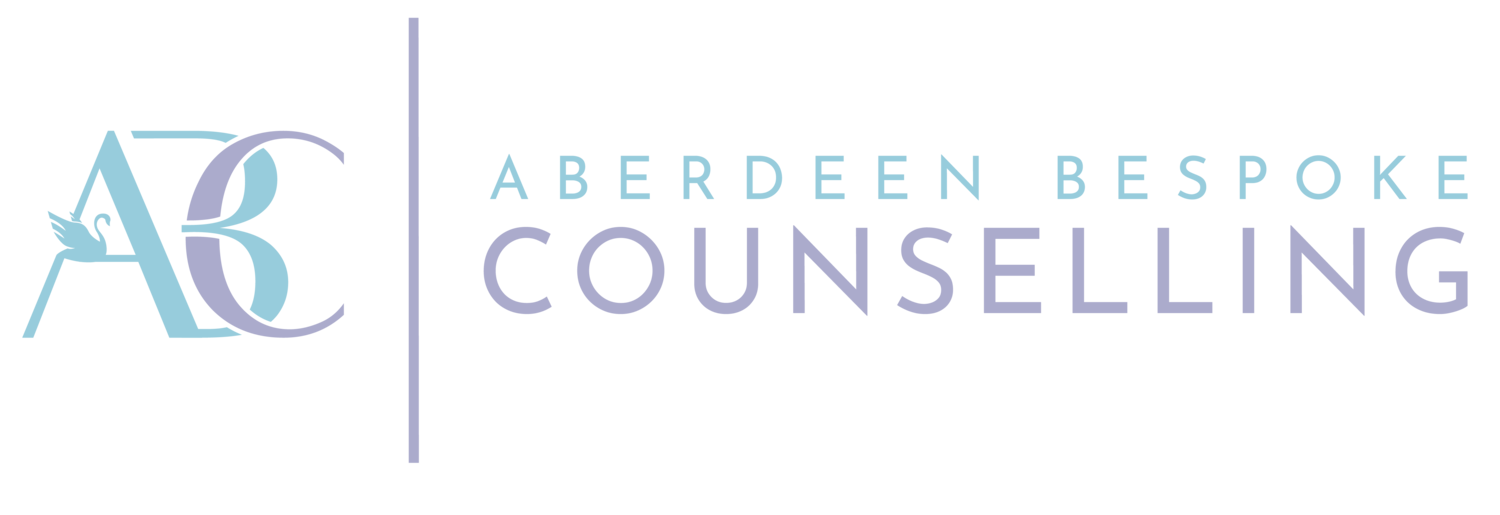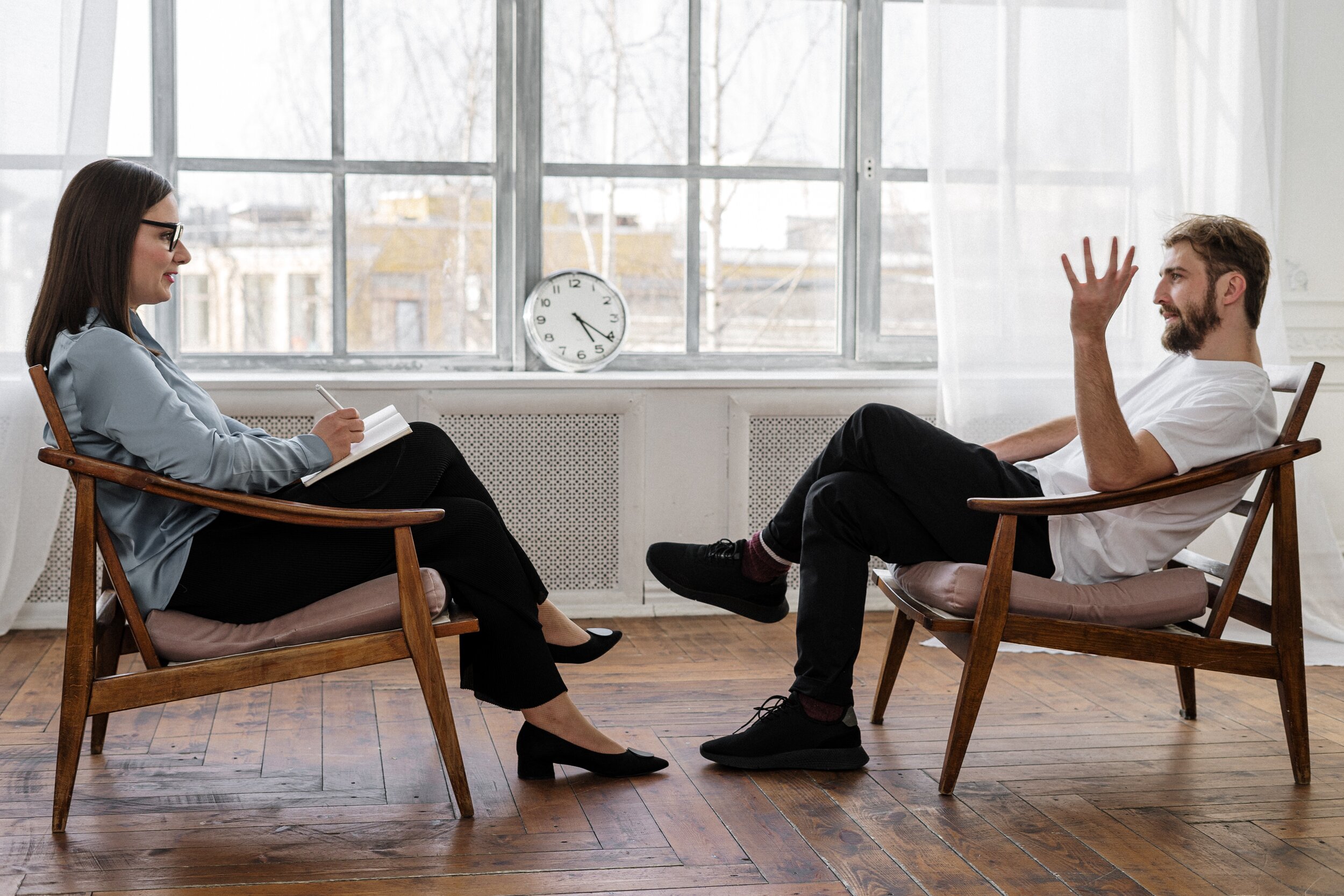How can self-disclosure build trust in the therapy room?
Would you like your therapist to self-disclose?
In my blog today I write about self-disclosure. What it is, how it can be viewed, my opinion of self-disclosure and most interestingly Irvin Yalom’s opinions of self-disclosure (whom I admire the most in the counselling world!). Irvin Yalom is an American existential psychiatrist who is emeritus professor of psychiatry at Stanford University, as well as an author of numerous well-known fiction and nonfiction books.
What is self-disclosure in the therapy room?
I focus on self-disclosure in the context of when, how, how much and what a counsellor can/should disclose about themselves to their client.
First of all, there are the basics which are naturally disclosed - the client may see roughly how old their counsellor is when they meet, they may take away a lot from what they wear (smart, casual, semi-formal etc), they may observe an accent or a wedding ring even. However, after these initial giveaways, it is down to each and every counsellor to decide if they feel self-disclosure is part of how they interact with clients.
A counsellor needs to consider when it is an appropriate moment for self-disclosure, what is suitable and most importantly what is helpful to the client, and finally judge how much detail they go into, by gauging the interest from the client. Self-disclosure carried out in a negative way for example, would be to share something with no gain to the client and just to join in a conversation with your client.
Self-disclosure can also just be about a counsellor feeling something strongly in the room about the client and being so real and genuine they share this with the client. Again, this would only be done if the goal was to help the client understand themselves or a situation more. An example of this which Irvin Yalom discloses is, he will stop in session and say “how are things going between us two? How do you think we are doing? Do you think I’m pushing too hard?”. If that sounds a little too open for you, just stop and think how refreshing it might be to have such an open therapeutic relationship with your counsellor. Somewhere you can actually say what you are thinking, in the most safe, non-judgemental and empathic environment…….sound a little better now?
Irvin Yaloms’ point of view
I will admit now I own, just about every one of his books, listened to podcasts about him, been on an online course with him (which was so exciting!!) and read many an article about him. However today I refer to an article in Therapy Today by Catherine Jackson (Vol32. Issue3. April 2021). Irvin shares with the interviewer that “that he cannot think of a single instance in which sharing your thoughts and personal feelings was not helpful to the patient”. He is a strong believer in counsellors’ self-disclosing and talks about how he will “invariably do some self-disclosure” during his sessions and how “100% of the time I find it catalyses the therapy. It makes things go better. People are much more able and willing to talk if I reveal something about myself”. He also takes it a further step by then asking his clients “what did my disclosure feel like to you?” “What are you feeling about me now?” He then describes it can often be like a “jet propulsion”. The client is then diving into their lives and being open too about themselves.
Irvin also likes to consider the clients’ early years but also looks carefully at the connections his clients have with other people throughout their lives. He can then look for patterns, be curious about how relationships turned out and really dig deeper to find who that client really is.
Briefly I would like to share with you a comment (which surprised me) that he wrote about previously disagreeing with one of his earlier clients who kept telling him “you don’t understand what I am going through though” (she had lost her husband). He kept arguing, “so I have to experience everything my clients go through to be able to counsel them?” But after Irvin very recently lost his wife a few decades later, he now looks back and surprisingly says “but now I see she was right. Now I have the experience of this block that she had and how she felt”. This now (and has previously) made me personally ask, do we as counsellors need to have experienced what our clients have?
My point of view
In answer to that last question, to an extent, would be my personal answer. We are trained very carefully to be there for our clients, to listen deeply, to be empathic, to be non-judgemental, to on occasion work together to help our clients get where they want to be in their lives. But have I experienced their exact problems? The answer would be no. Has anyone experienced the exact same problem? Or felt the same about that exact same problem? No? Have I experienced some trauma, bereavement, bullying, chronic pain, etc the answer would be yes. I am happy to disclose that in this blog hopefully to express to my clients and future clients I am open to sharing and understand sometimes that sharing can build trust. When I open up in sessions it will be with a purpose to help build that trust with my client, to open the door for them to step through and open up themselves, to share an experience. Even share how I improved it and what they too might find could improve their situation. I don’t ever dwell on it and it will likely be brief, unless my client wants to know a little more which would be helpful to them and their life.
You as a client may or may not know that Counsellors have to attend counselling themselves as part of their training and most of us still continue to do so. Our lives, you might also be surprised to know, aren’t perfect and we too go through struggles, difficult experiences or challenges that life throws at us.
Client’s point of view
On these occasions that I have self-disclosed to clients I have often received the comments, “it’s nice just to know you are human too” and “thanks for saying that, how did you move forward with it?” Clients have also fed back how reassured they felt to hear that I have experienced real life struggles and understand how it impacts people’s lives and those around them. I have picked up that some clients are almost relieved that I too have been through those dark or challenging times in my life and not just studied the theory in my training.
If I self-disclose, I am doing so in a way that will not make the client awkward but invite them to look further into themselves and come back to me with hopefully a deeper evaluation of their life experience or struggles.
I am always observing carefully how my clients respond to this. If it helps to open them up and build our trust I may at later or relevant points do this again. However, if I pick up this is uncomfortable or there is any feeling, I am taking the focus away from them then I will naturally draw this approach to an end. The name of my business ‘Aberdeen Bespoke Counselling’ underlines the necessity to recognise that every client is different, comes with different needs and different goals and I will always be flexible with them.
When my therapist disclosed to me..…
I recall a personal moment when my therapist self-disclosed to me about similar but different chronic pain issues. I immediately felt reassured she might just understand what it’s like to be in pain all the time. She might get how it’s there when you wake up, it follows you to work and it’s there when you go to sleep. I immediately asked what helped, what didn’t help, who did you see, what did you try? And although there wasn’t that magic wand from her, I did come away with a few new avenues to go down and some comfort she really understood some of what I was experiencing.
Conclusion
In conclusion I believe it can be a positive thing for my clients, should they be open to it and find it beneficial to them. What do you think about self-disclosure now you have read this? Would you like your counsellor to self-disclose to you?
I also believe if you are as passionate about being a counsellor, as am I, it can show in how you come across. If your clients can also can feel how passionate and genuine you are, doesn’t this help both sides to open up naturally in that therapeutic hour?
Finally, Irvin also says in this article “I love the work, I love the therapy. I love the connections with people” and I too can truly relate to this. This career wasn’t what I have done all my life, in my previous life I worked in Human Resources. However, a fork came in the road and I decided upon a career change. After I found counselling, I studied Person Centred Counselling and I then felt like I had found my vocation in life. I love what I do, I’m constantly reading and researching, attending courses and reflecting on my clients. I do this because I too love counselling and am dedicated to finding that connection with each and every one of my clients.

